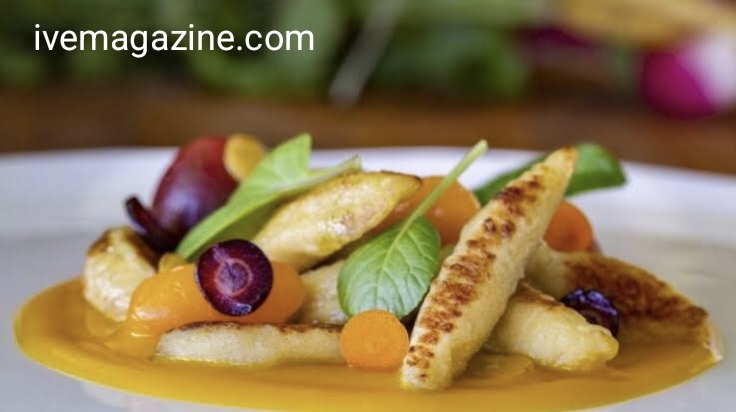Introduction
When it comes to gourmet meats, jade venison stands out for its unique blend of rich flavor, leanness, and elegance. This rare delicacy, known for its deep greenish-brown hue and tender texture, has gained attention among chefs and health-conscious foodies. Unlike regular venison, jade venison often comes from deer raised on specific diets and in pristine environments, enhancing both taste and nutritional value.
What is Jade Venison?
Jade venison refers to premium-quality deer meat that boasts a darker, jewel-toned color and a more refined taste profile. This term isn’t widely standardized, but it’s often used to describe specially-sourced venison that meets higher culinary standards. The name “jade” symbolizes its luxurious quality and exceptional aesthetic appeal when cooked.
Origins and Source of Jade Venison
Most jade venison comes from free-range deer farms or wild game harvested under strict ethical and environmental regulations. These sources ensure sustainability, animal welfare, and superior meat quality. Regions like New Zealand, Scotland, and parts of North America are well-known for producing high-grade venison.
Taste and Texture Profile
One of the reasons jade venison is prized is its flavor. It has a mild, earthy, slightly sweet taste with none of the gamey intensity often associated with wild meats. The meat is naturally tender, especially when prepared with care, making it ideal for gourmet dishes.
Nutritional Benefits of Jade Venison
Jade venison isn’t just delicious—it’s also incredibly nutritious. Here’s what makes it a smart choice:
- High in Protein: Supports muscle growth and repair.
- Low in Fat: Contains significantly less fat than beef or pork.
- Rich in Iron and Zinc: Helps boost energy and immunity.
- Source of Omega-3s: Particularly if sourced from pasture-fed deer.
| Nutrient | Amount (per 100g) | Benefit |
|---|---|---|
| Protein | 24g | Muscle repair |
| Fat | 1.6g | Heart health |
| Iron | 3.4mg | Oxygen transport |
| Zinc | 4.5mg | Immune function |
Culinary Uses of Jade Venison
Jade venison adapts well to various cooking methods, making it a favorite for chefs and home cooks alike. It works beautifully in:
- Grilled steaks
- Slow-roasted medallions
- Venison bourguignon
- Gourmet burgers
- Spiced skewers
Quick searing or sous vide cooking brings out its natural tenderness while locking in moisture.
Why Choose Jade Venison Over Other Meats?
Choosing jade venison over conventional red meats comes with several advantages:
- Lower calorie content
- Ethically sourced
- Sustainable farming practices
- Minimal antibiotic and hormone exposure
These benefits make it an ideal option for health-conscious eaters who don’t want to sacrifice flavor for fitness.
Where to Buy Jade Venison
Although still niche, jade venison is becoming more accessible. It’s available through:
- Specialty butchers
- Gourmet food retailers
- Online meat delivery services
- Farmers markets with game meat offerings
Always check for certifications or details on sourcing to ensure quality.
Storage and Shelf Life
Jade venison should be stored properly to maintain its quality:
- Refrigerate at 0–4°C for up to 3 days
- Freeze at -18°C for up to 6 months
- Vacuum-sealed packaging extends freshness
Proper thawing (in the fridge) is essential to preserve flavor and texture.
Pairing Suggestions: Wine and Sides
The rich, earthy tones of jade venison pair excellently with:
- Full-bodied red wines like Shiraz or Pinot Noir
- Savory sides such as garlic mashed potatoes or roasted root vegetables
- Bold sauces, including red wine reduction or blackberry glaze
Common Myths About Jade Venison
There are several misconceptions about venison in general:
- “It’s too gamey.” – Not true for jade venison; it’s much milder.
- “Too tough to cook.” – Only if overcooked; proper prep ensures tenderness.
- “Unhealthy like red meat.” – Actually, it’s much leaner and more nutritious.
Environmental Impact
Sustainably sourced jade venison contributes to:
- Biodiversity conservation
- Reduced greenhouse gas emissions
- Supporting eco-friendly farming practices
This makes it a responsible choice for environmentally-aware consumers.
How to Cook the Perfect Jade Venison Steak
Steps:
- Let the meat reach room temperature.
- Season simply—salt, pepper, and herbs.
- Heat pan to high; sear 2-3 minutes per side.
- Rest the steak for 5 minutes before slicing.
This method preserves flavor and texture while delivering a restaurant-quality result at home.
FAQs About
1. What does taste like?
It has a mild, slightly sweet flavor with a tender texture, unlike traditional game meats.
2. Is healthier than beef?
Yes, it’s leaner, lower in calories, and packed with essential nutrients like iron and omega-3s.
3. Can I cook in the oven?
Absolutely. Slow roasting or sous vide works well to preserve its moisture and flavor.
4. Where can I find authentic ?
Check specialty butchers, online gourmet retailers, or certified game meat suppliers.
5. Is suitable for children?
Yes, it’s a nutritious, low-fat protein option that’s safe for all age groups when properly cooked.
6. How should I store leftover?
Refrigerate in an airtight container for up to 3 days or freeze for longer storage.
Conclusion
Jade venison offers a rare combination of flavor, health benefits, and sustainability. Whether you’re a food enthusiast, a gourmet chef, or someone seeking healthier meat options, deserves a place in your kitchen. With proper preparation and sourcing, it promises a culinary experience like no other.



